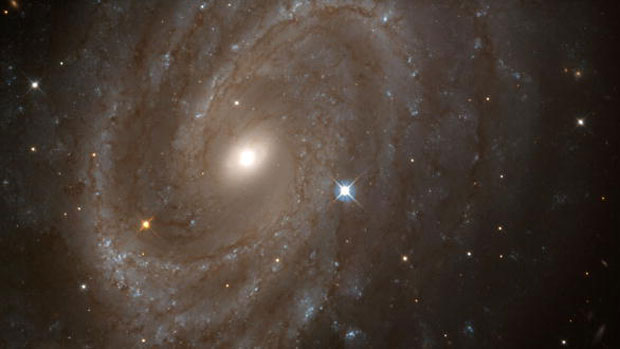Big Bang: does 'extraordinary' discovery prove theory right?
A signal from the dawn of time could be the 'smoking gun' that confirms the Big Bang theory

A free daily email with the biggest news stories of the day – and the best features from TheWeek.com
You are now subscribed
Your newsletter sign-up was successful
SCIENTISTS have announced "extraordinary" new evidence that supports a 'Big Bang' theory for the origin of the universe.
If it is verified, the discovery will prove the theory that the universe expanded incredibly rapidly in less than a trillionth of a second after it was formed. Max Tegmark, a cosmologist at MIT, told the New York Times: "If this stays true, it will go down as one of the greatest discoveries in the history of science."
What has been discovered?
The Week
Escape your echo chamber. Get the facts behind the news, plus analysis from multiple perspectives.

Sign up for The Week's Free Newsletters
From our morning news briefing to a weekly Good News Newsletter, get the best of The Week delivered directly to your inbox.
From our morning news briefing to a weekly Good News Newsletter, get the best of The Week delivered directly to your inbox.
Researchers at Harvard University believe they have found a "signal in the sky" that emerged during the first moments of ultra-rapid expansion just after the universe came into existence, the BBC reports. The scientists think they have observed gravitational waves, first postulated in 1916 by Albert Einstein as part of his General Theory of Relativity. Gravitation waves are essentially ripples in space-time that have been described as the "first tremors of the Big Bang", Science Daily explains.
How was it discovered?
Researchers have been peering into space with a telescope set up at the South Pole where the dry, thin air creates "ideal observing conditions". The telescope, known as Bicep2 – Background Imaging of Cosmic Extragalactic Polarization 2 – allowed scientists to analyse the polarisation of light left over from our universe's early moments.
What is Big Bang Theory?
A free daily email with the biggest news stories of the day – and the best features from TheWeek.com
Big Bang theory holds that the universe exploded from an infinitesimally small, dense space and expanded rapidly into what we see today 13.8 billion years later. Thirty years ago, an extra element was added to the theory called "inflation", which proposed that less than a trillionth of a second after the Big Bang, the universe went through a sudden period of explosive growth. Scientists now believe that they have seen a particular signal that relates to that moment. The Bicep2 results are the "smoking gun for inflation", Marc Kamionkowski, professor of physics and astronomy, said at a news conference.
Why is inflation important?
The results are particularly exciting for scientists because they may help to unite the four recognised fundamental forces of the nature (gravity, electromagnetism, and strong and weak nuclear forces) into a unified 'Theory of Everything'. The results will need to be examined closely, but already there is talk of the scientists involved being awarded with the Nobel prize. British scientist Dr Jo Dunkley, told the BBC: "I can't tell you how exciting this is. Inflation sounds like a crazy idea, but everything that is important, everything we see today – the galaxies, the stars, the planets – was imprinted at that moment, in less than a trillionth of a second. If this is confirmed, it's huge."
-
 Quiz of The Week: 14 – 20 February
Quiz of The Week: 14 – 20 FebruaryQuiz Have you been paying attention to The Week’s news?
-
 The Week Unwrapped: Do the Freemasons have too much sway in the police force?
The Week Unwrapped: Do the Freemasons have too much sway in the police force?Podcast Plus, what does the growing popularity of prediction markets mean for the future? And why are UK film and TV workers struggling?
-
 Properties of the week: pretty thatched cottages
Properties of the week: pretty thatched cottagesThe Week Recommends Featuring homes in West Sussex, Dorset and Suffolk